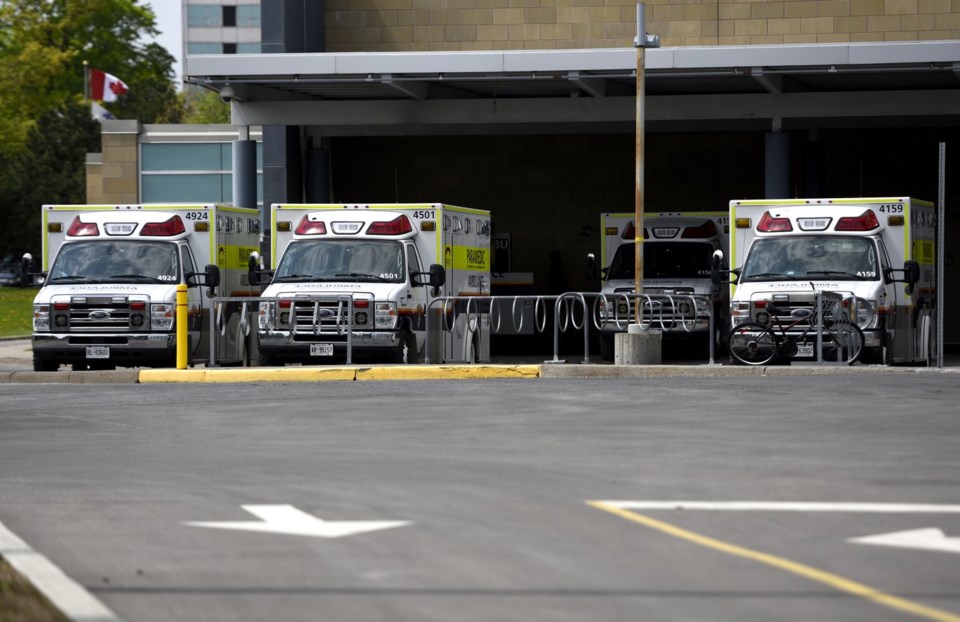Rural and northern Ontario hospitals are anxiously awaiting word from the provincial government on a program that helps them keep emergency rooms open, after it ended last month.
Health Minister Sylvia Jones' office has said it is working on a permanent solution after the temporary program expired, but in the meantime the people who work to keep ERs open are concerned about filling those shifts.
"Because we're so short-staffed, we cannot run a 24-hour emergency department without outside physician support," said Ann Fenlon, the medical recruitment and retention co-ordinator at Lady Dunn Health Centre in Wawa, Ont.
The northern Ontario community is supposed to have seven doctors who provide both family and emergency medicine, but they currently have three, Fenlon said. They have not had to close their ER, but they have come close, she said.
"We're 240 kilometres away from the next hospital," Fenlon said. "If we close, people die."
The Temporary Locum Program pays doctors an incentive to fill emergency department shifts – with most of those physicians coming from other, more urban parts of the province – to help hospitals in more isolated areas on a locum, or temporary, basis.
Ontario first established it as a temporary program during the COVID-19 pandemic, but amid broader physician staffing challenges the rural and northern hospitals have come to rely on it.
The Ontario Medical Association's emergency medicine section chair suggested in a recent memo to emergency department leads that staff at several hospitals have been expressing concerns about the current limbo.
"The section is acutely aware of the impact the end of this program will have on staffing stability of emergency departments across the province," Angela Marrocco wrote.
"We have done everything we can to emphasize this reality to the Ministry of Health...The OMA is continuing to pursue ways to mitigate any negative impacts related to timing between expiry of TLP and implementation of a permanent model."
A spokesperson for Jones said the goal has always been a permanent program, and the ministry is currently in negotiations with the OMA.
“Hospitals can continue to schedule physician coverage as required as we work with the Ontario Medical Association to transition the temporary locum program into a permanent program through the new Physician Services Agreement," Hannah Jensen said.
But the question is not whether hospitals can continue to try to book doctors on a locum basis, said Melanie Goulet, recruitment co-ordinator for health professionals at Notre-Dame Hospital in Hearst, Ont.
It's whether there will be funding to incentivize physicians to fill those shifts.
"Obviously (we'll) continue to book them...We don't want to close our emerg," she said.
But at the moment she isn't sure what will happen with the doctors currently in Hearst on a locum basis or those with shifts coming up – will their additional pay come later, on a retroactive basis? In her region it amounts to almost $900 for a 12-hour shift, so without it she worries recruitment will be hampered.
""We have one physician, she's in Hearst for almost two weeks...and I don't know what to tell her," Goulet said. "So as much as they say they're clear, I don't think they actually understand the situation."
The ministry also offers an Emergency Department Locum Program, but there are different criteria, and it is mostly for last-minute needs, not allowing co-ordinators to plan too far ahead, Goulet said. Both programs help ERs stay open, she said.
The Temporary Locum Program has been extended several times, in at least one case months after it had already expired. Hospitals just want some certainty, Fenlon said.
"We've always known that it's temporary, because that's part of the title of the program," she said. "But they've had four years to figure it out."
This report by The Canadian Press was first published April 7, 2025.
Allison Jones, The Canadian Press



